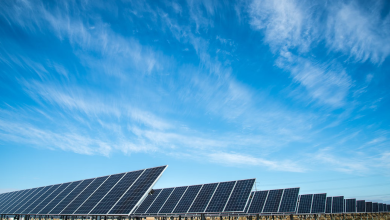Plastic Discovered in Clouds, Causing Climate Change: Scientists

Japanese scientists discovered polymers and rubber in cloud water in Mount Fuji and Mount Oyama. They believe that plastic pollution could be playing a role in climate change. This is the first case and report of airborne microplastics in cloud water.
Researchers found nine different types of polymers and one type of rubber in the airborne microplastics. They detected 14 pieces of plastic per litre of water which ranged in size, 7 to 95 micrometers, over the average width of a human hair at 80 micrometres.
Plastics impact global temperature. Experts say plastics emit greenhouse gases throughout its lifecycle. Research highlights that greenhouse gas emissions from plastic could reach about 13 percent of the entire remaining carbon budget by 2050.
Plastic Air Pollution – Climate Change
Microplastics are minute plastic particles under five millimeters. It comes from textiles, industrial effluent, personal care products, synthetic car tires and other things.
For decades, these microplastics have been found inside turtles, seals, fish and jellyfish to Arctic sea ice, and on the Pyrenees mountains between France and Spain.
Hiroshi Okochi, lead author of the research, warned that if plastic air pollution is not addressed, climate change and ecological risks may become a reality.
It can cause irreversible and serious environmental damage. He explained that when microplastics reach the upper atmosphere and are exposed to ultraviolet radiation from sunlight, they degrade and contribute to greenhouse gasses.
The report says ten million tons of these plastic bits end up in the ocean, released with the ocean spray, and find their way into the atmosphere. “This implies that microplastics may have become an essential component of clouds, contaminating nearly everything we eat and drink via plastic rainfall.”
This is also a health hazard as it can affect the heart, lungs and cause cancers.
How Does it Contribute to Climate Change
Plastic pollution, as per various studies, interferes with the oceans capacity to absorb and sequester carbon dioxide.
ALSO READ: WWII-era Unexploded Bombs and Missiles Rotting on Baltic Seabed.
It creates an under pathway through air which plastic pollution contributes to accelerate climate change. Microplastics affect the ability of marine organisms to absorb carbon dioxide and release oxygen.
It affects the ability of organisms, like plankton, to grow, reproduce and capture carbon. Plankton grazing on microplastics will further accelerate the loss of ocean oxygen. Scientists say this will create a negative feedback loop where plant and animal life suffer and less carbon dioxide is absorbed. This hampers our efforts to tackle climate change.



